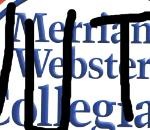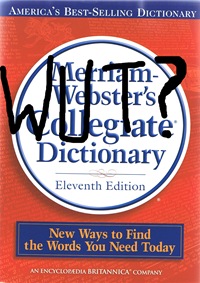This past summer, I sat in a little pizza and wing pub in a town outside Pittsburgh and had lunch. An array of televisions decorates the place, generally showing sports or action movies for people to watch in the background as they eat. This particular day, however, they were showing the Scripps National Spelling Bee, where hundreds of the nation’s smartest kids go round after round spelling words most of the general public can’t spell, can’t define, and haven’t even heard of.
If these kids don’t immediately know the spelling of a word, they’ll inquire about its definition or its country of origin, using language cues and context to help shape the word. Spelling not only requires an understanding and memorization of the word itself, but a grasp of where the word came from, how it is used, and the way words are structured in its original language. English is nothing more than a twisted version of tons of other languages, and these kids know how to come to the right conclusions. And a lot of them are only ten years old.
Naturally, these Scripps folks are extreme examples of spelling abilities. They devote huge chunks of their lives to studying language, derivations and conjugations. Most people don’t need to be able to spell logomachy, or start into a logomachy about the spelling of logomachy. (Logomachy is an argument about words). Most people don’t care to learn to spell this well.
But we should be able to spell something, right?
These days, just about everything we type is being watched by a spell checker. In word processors, WordPress applications, Facebook, E-mail, Google (did you mean…?) – if we spell something wrong, chances are something is going to catch it. Unless, of course, our improper spelling is a proper spelling in another context.
Sites like Facebook and Twitter allow us a glimpse into people’s casual bad grammar and spelling habits. Despite having auto-spell checks, bad grammar and poor spelling are so prevalent in these casually-written social areas that most people don’t even notice – or don’t know any better.
And how many times have you watched someone write something down, or received something hand-written from someone, only to have them say “sorry, I’m a terrible speller.” It seems like most people consider themselves terrible spellers.
Ultimately, it’s because people feel like they don’t need to learn how to spell anymore. Everything is typed now, from consults with a company’s customer service department to a letter to Granny Ann, and it’s all being carefully watched by the machine and its squiggly little red line of correction. You simply need to type away, and every piece of garbage will be underlined. To make things even more convenient, in word processing applications, you don’t even have to then type the word properly. A simple right-click will bring up a variety of options so you can pick the word you meant to type. No learning involved.
Add to that the fact that people today don’t read nearly as much as they used to (outside of other people’s terribly-spelled social info), and the average person is getting less and less exposure to new words and proper spellings. Oh, and remember when people used to look stuff up in a dictionary? Who the hell owns one of those?
But with all that, it’s outside the computer where people’s true spelling inabilities show. When there is no spell check available we find out how people truly spell.
At the grocery store yesterday, I walked from the front door to the customer service desk to buy a book of stamps. At the desk, a sign said “No check’s accepted today.” On my way out through the produce department, a hand-written sign was advertising “pomigranetes.” As someone who has never actually performed a manual spell check on anything, ever, seeing these two things made me die a little inside. This grocery store chain basically owns the states of Ohio and Pennsylvania. It’s the 32nd largest privately-held corporation in America (that’s higher on the list than Hearst, Levi, Neiman Marcus, Hallmark and Gulf Oil, to get some perspective). Yet, they can have badly-written signage right out front in their stores and nobody’s the wiser.
As technology grows and we spend more time at computers that continually get smarter and more effective at fixing our mistakes, are we going to become worse and worse at simple things like spelling? Are we becoming that dependent on machines to not bother with learning one of the basic foundations of language?
Do you consider yourself a good speller? Do you know others who don’t? What do you think? Nobody expects general people to be as effective as the prodigies that populate the Scripps National Spelling Bee, but it seems too many people are suffering with the basics. As an evolving society, where college degrees are so common they’re becoming worthless, where innovations boom and progress never stops, we’re supposed to be getting smarter as a people. You wouldn’t know it by the looks of our words.
Is spell check to blame, or is something else holding us back?
Think you’re good? Take a fun and challenging spelling quiz at the Scripps website: http://www.spellingbee.com/




1 comment for “Is Spell Check Making Us Stupid?”